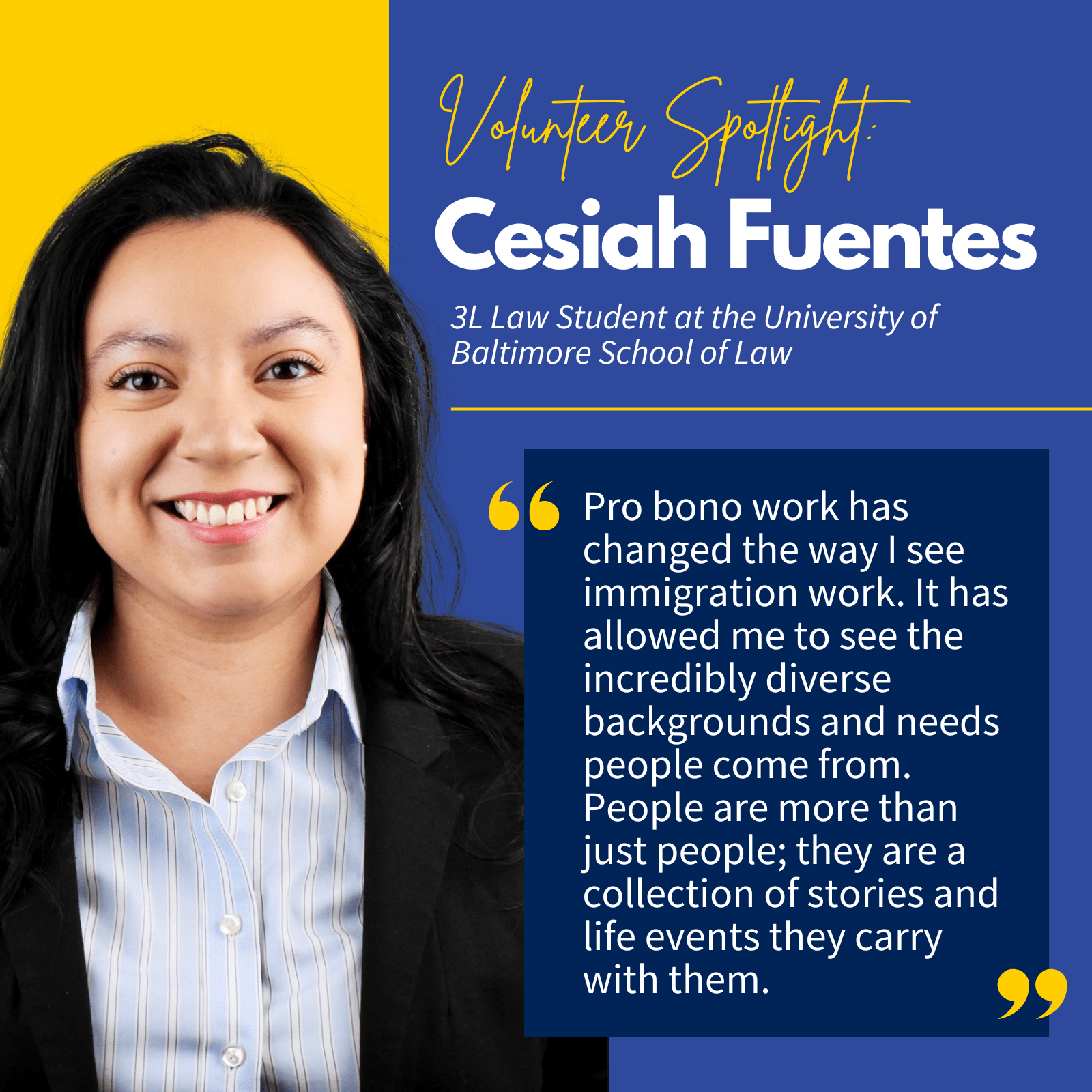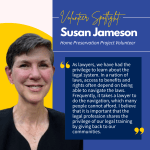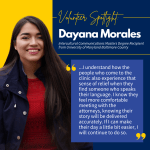Volunteer Profile: Cesiah Fuentes

1. What brought you to begin your legal career in Maryland?
I’m right at the start of a legal career. I’m a 3L law student at the University of Baltimore School of Law, expected to graduate this May 2024! I worked in the Maryland General Assembly for about 3 years before attending law school. While my time in state government, I discovered an interest in advocacy, policy, and direct client services. When I began law school I wanted to keep in open mind about my legal interests, so decided to try many different areas of law. However, once I gained experience in immigration law, I knew I found a promising track for a legal career. I am grateful for the immigration related work I have done thus far, and I am eager to learn more this fall with the Executive Office of Immigration Review’s Office of Legal Access Programs.
2. Which of PBRC’s projects do you volunteer with, and how did you get involved?
I volunteer as an interpreter in PBRC’s Maryland Immigrant Legal Assistance Project (MILAP). I was introduced to the PBRC as a 1L law student in 2022. Outside of family experiences with immigration, this was my first look into an immigration intake process. At the first clinic I volunteered in, I remember meeting both experienced and unexperienced attorneys in immigration law and all were equally invested and compassionate towards the individuals we met with. I left encouraged and decided to volunteer at least once every semester.
3. What is the problem this project addresses, and what do you do as a volunteer to help? Did the pandemic exacerbate this problem in any way that you’re still seeing today?
MILAP brings much needed guidance and support to immigrants in Maryland with pending immigration court cases. As a volunteer I would help as a Spanish interpreter. The pandemic put thousands of cases on hold, so our already backlogged immigration system experienced greater delays because of the early lockdowns. While our immigration courts do their best to catch up, immigrant families are left waiting for months or even years. These days, alleviating some stress and confusion is the least I can do as a volunteer interpreter.
4. What do you find interesting about this work?
I find everything about immigration law interesting. So, the fact that as a law student I have been able to explore this field while practicing interpreting skills has been like no other experience. These clinics allow me to meet incredible attorneys, and families from all over the world seeking immigration relief. Every day I volunteered was an interesting day.
5. What, if anything, did you find surprising about volunteering at community clinics or in-court? What has been rewarding? What, if anything, has been frustrating?
Volunteering at a community clinic or in court can feel daunting. You appear for the day and usually there is already a line or group of people waiting for a consultation. But surprisingly – yet it shouldn’t surprise me anymore – collectively, we help every single person who arrives. The MILAP is a small but mighty team, and they inspire me. It is rewarding to see when people begin to understand their case in their own language. Language can be a huge barrier in any legal case, so just being the conduit between Spanish-speaker and attorney is rewarding.
6. How does the project make it easy to volunteer?
Receiving email communications for upcoming clinics is very helpful. It is the main way I keep track of upcoming clinics I can help with. MILAP stays on top of communicating their demand for volunteers and then make the resources for training very easy and straightforward.
7. Is there a particular moment or memory that stands out for you?
I honestly can’t pick one memory or client that stood out because they all taught me something different. Maybe the most significant memory was my first-time volunteering with MILAP. On that day, the MILAP staff knew I was a law student and offered me a moment to just observe a Spanish-speaking attorney and her consultation. I appreciated that Cate and her team were so thoughtful in creating an informed and educational experience for all of us involved.
8. How has doing pro bono work changed you?
Pro bono work has changed the way I see immigration work. It has allowed me to see the incredibly diverse backgrounds and needs people come from. People are more than just people; they are a collection of stories and life events they carry with them. I feel honored to help them share their story. I have also learned how easy it is to volunteer and the very real impact you can have on one person or family. I am more eager to learn of non-immigration clinics for when I become an attorney because of the pro bono work I have done. These experiences make me want to be a more curious and empathetic attorney.
9. How important do you think pro bono work is to the legal profession?
Pro bono work is so important to the legal profession. Attorneys are educated and trained to be experts in law, and some are specialized in their fields. It goes without saying that those who can, should provide their knowledge and expertise to their community.
For more information about volunteering in Maryland, please contact: education@probonomd.org







